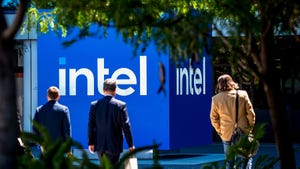AI for Everyone: Salesforce Einstein Wants to 'Democratize' Artificial IntelligenceAI for Everyone: Salesforce Einstein Wants to 'Democratize' Artificial Intelligence
Image recognition for CRM is the first platform feature to hit general availability.
March 8, 2017


Brought to You by Talkin' Cloud
Hiring one data scientist could cost your organization around $100,000 per year, but with Salesforce Einstein, you may not need to budget for that role just yet.
On Tuesday, Salesforce Einstein – the CRM giant’s foray into baked-in artificial intelligence – was launched in general availability, months after Salesforce first launched Einstein at Dreamforce in October.
This week Salesforce unveiled more specifics around what AI can do for its customers and partners, providing case studies and customer perspectives at an event in its San Francisco office that was live streamed on its website.
“Now everyone has a data scientist,” a senior engineer at Salesforce told the audience of investors and customers on Tuesday, describing how Salesforce Einstein leverages data from its email, CRM and social that it has collected “from the very beginning.”
The idea behind Einstein, according to Jim Sinai, VP of Salesforce Einstein Marketing, is that Salesforce is “democratizing artificial intelligence and putting it inside of every single CRM feature so that everyone has a data scientist in their day.”
“We had to solve for the fact that every single one of our customers are different,” Sinai said in an interview with Talkin’ Cloud. “They use our functionality differently; they customize it to their business and their industry so the whole way of doing AI which is a very human-led process of data sampling, feature selection, model selection, etc. is not scalable. The core principle of AI is that it is automated machine learning. We’re actually using AI to build AI.”
Related:
Dreamforce 2016: Salesforce Sets Stage for AI-Powered Future
Salesforce to Partners: Nothing Fake About Artificial Intelligence Opportunity
6 Cloud Growth Areas to Watch According to Analysts
Einstein Vision is the first platform feature to reach general availability; it is a set of APIs that will enable customers and partners to use image recognition in their CRM and applications.
“In the spectrum of AI one of the holy grails is helping computers understand and see images, and how to unlock information from the vast world of photography,” Sinai said. “How do companies take image recognition and put them into their customer relationship workflows, things like visual search, brand detection, and even product identification?”
Customers will be able to train Einstein Vision to recognize their own brand and products, he says. For example, Salesforce customer Coca-Cola can use Einstein to help retailers identify which products to restock. In a demo by Richard Socher, chief scientist at Salesforce, he shows how a retailer could take a photo of their fridge with an iPad and Einstein would identify how much inventory of each product there is, which products need to be reordered, and which products the retailer should add based on customer demand, and actually order the products, all from within a single application and experience.
The use of Einstein is not limited to big companies like Coca-Cola, though. A mom-and-pop roofing installer could use Einstein Vision to identify what type of roof a lead has by knowing their address that they enter on a lead form on a website; from within Salesforce CRM Einstein can pull up the lead’s house on Google Street View and identify whether the roof is slopped or not, Sinai said.
“We’re putting Einstein right into the base of the platform so what that means is partners can extend the power of Einstein to all their applications,” he said. “All these insights that Einstein is putting into all of these clouds are extensible to every application. If you are a pure sales cloud ISV you can take all the insights from Einstein and extend them into your application. If you’re a channel partner on Marketing Cloud or in Commerce Cloud you can help your customers get to more successful and more impactful ROI, faster.”
Salesforce says that the possibilities with Einstein and AI are limitless, and are much more accessible than other AI services which may require a lot of investment with consultants and integrators, Sinai says.
“We have this unique problem that all of our features - whether it’s an opportunity or a marketing email feature - they’re all general features that are different for customers based on their industry, the size of their customer, how they customize it,” he said. “We’re able to learn from all that data and automatically select the right model that is going to lead the customer to the right result. And because we’re building this at the application-layer we can integrate it right into the UI, we can get the feedback from the users right away.”
With Einstein, Sales Cloud customers will be able to see a “Lead Score,” which evaluates leads based on top predictive factors. Sinai said that one of its customers of Sales Cloud is already seeing results.
Silverline, a consulting firm out of New York, is seeing 30 percent higher close rates with Einstein, Sinai says.
“Their reps are saving as much as two hours a week on tasks that are being automated by Einstein,” he says.
Salesforce, IBM Team Up in Artificial Intelligence
In the lead up to Tuesday’s event, Salesforce announced a partnership with IBM on Monday whereby they will deliver joint solutions that combine IBM Watson and Salesforce Einstein.
The partnership will initially see an integration of IBM Watson APIs into Salesforce to bring predictive insights from unstructured data with customer data delivered by Salesforce Einstein.
The partnership will also enable customers to bring together on-premise enterprise and cloud data with specialized integration products for Salesforce, according to a press release.
“Within a few years, every major decision—personal or business—will be made with the help of AI and cognitive technologies,” Ginni Rometty, chairman, president and chief executive officer, IBM said in a statement. “This year we expect Watson will touch one billion people—through everything from oncology and retail to tax preparation and cars. Now, with yesterday's announcement, the power of Watson will serve the millions of Salesforce and Einstein customers and developers to provide an unprecedented understanding of customers."
This article originally appeared on Talkin' Cloud.
About the Author
You May Also Like







